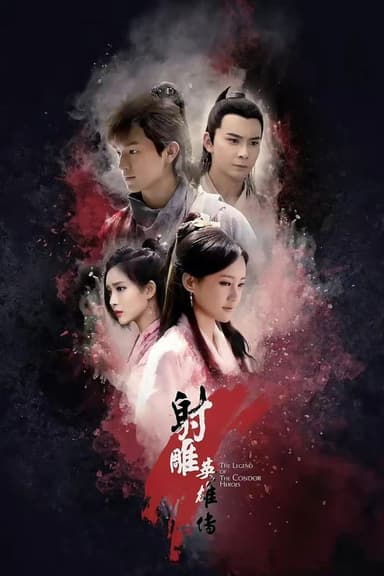
Demi-Gods and Semi-Devils
2003 • Drama • NR
Demi-Gods and Semi-Devils is a Chinese television series adapted from Louis Cha's novel of the same title. It was first aired in China on CCTV on 22 December 2003.
Why you should read the novel
Delving into Jin Yong's original novel 'Demi-Gods and Semi-Devils' immerses readers in a literary masterpiece that far surpasses its screen adaptations. The novel intricately weaves together the fates of its three protagonists—Qiao Feng, Duan Yu, and Xuzhu—while exploring profound themes of identity, loyalty, and the struggle between good and evil in a way that only the written word can offer. Jin Yong's narrative style is rich with philosophical depth, unexpected twists, and vivid descriptions that bring the martial arts world to life, inviting readers to engage with the story on a much deeper level than television allows.
Reading the book allows for a fuller appreciation of the complex character development and emotional nuances that are often condensed or missed in adaptations. Key relationships and moral dilemmas are explored with subtlety, providing a greater understanding of the motives driving each character's actions. The internal struggles, motivations, and transformations of the protagonists gain added significance through Jin Yong's detailed inner monologues and narrative insights, offering a more satisfying and complete depiction of their journeys.
Furthermore, the novel's portrayal of the ancient martial arts world is unmatched in its complexity, with elaborate sect hierarchies, mysterious martial arts techniques, and intricate political battles rendered in stunning detail. For readers who crave depth and authenticity in storytelling, Jin Yong's text stands as an enduring classic, ensuring an enriching and unforgettable reading experience that no television adaptation can truly replicate.
Adaptation differences
One of the most significant differences between the 2003 TV adaptation of 'Demi-Gods and Semi-Devils' and the novel lies in the structure and pacing of the storylines. The television series, constrained by the number of episodes and audience expectations, tends to streamline and occasionally reorder major events, simplifying subplots to maintain momentum and viewer engagement. This often results in the omission or alteration of secondary character arcs and their intertwined relationships that are intricately developed in the novel.
Characterization is another area where the two versions diverge considerably. In Jin Yong's novel, the protagonists' inner thoughts, inner conflicts, and philosophical dilemmas are explored with great nuance and subtlety, which is challenging to translate onto the screen. The TV adaptation frequently externalizes these conflicts, sometimes using dialogue or visual cues rather than allowing characters' inner turmoil to unfold gradually, leading to a less profound portrayal of their emotional journeys.
Certain plot twists and resolutions also differ between the book and adaptation, sometimes for reasons of censorship or to appeal to a broader television audience. For example, tragic or ambiguous endings from the novel may be softened or altered for television audiences, and some controversial relationships are modified or toned down, thus changing the impact of the original narrative. These changes often affect the story’s moral and thematic complexity.
Additionally, the adaptation must visualize martial arts moves and fantastical elements that Jin Yong describes with poetic license in the novel. The imagination and atmosphere that spring from his writing do not always translate directly to the screen, leading the adaptation to rely on special effects or choreography that might not capture the same sense of wonder or intricacy. As a result, fans of the book sometimes find the TV series lacking in the depth and mystical allure that defined the original wuxia masterpiece.
Demi-Gods and Semi-Devils inspired from
Demi-Gods and Semi-Devils
by Jin Yong





